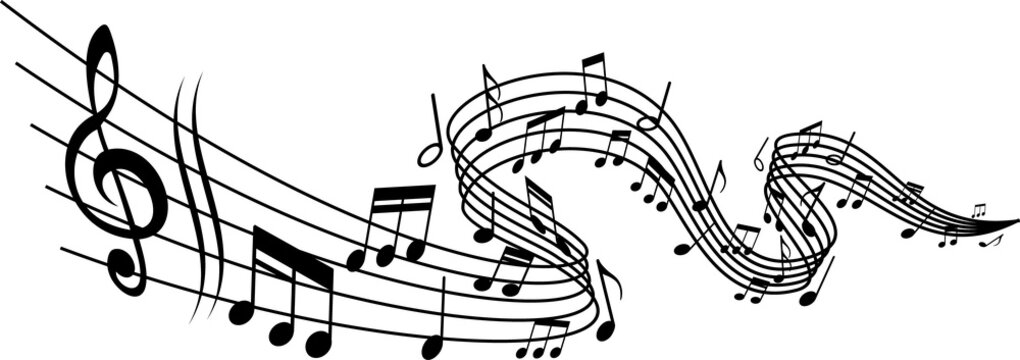
In the year 2525—I mean, 1970—two monumental events happened. First, D. Michael (me) became a junior at White Bear Senior High in White Bear Lake, a suburb northeast of St. Paul, Minnesota.
Second, a new, groundbreaking music album exploded onto the scene. It was a double album (vinyl in those days), and billed as a “rock opera,” music by Andrew Lloyd Webber, lyrics by Tim Rice.
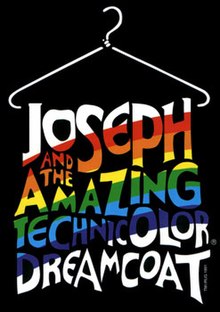 That musical team had already made a minor splash with a much shorter “operatic musical,” a theatrical genre that is similar to a classical opera, but with more modern music. It was called Joseph and the Amazing Technicolor Dreamcoat. I knew nothing of Webber and Rice or that musical when the momentous events of the year 2525—I mean, 1970—happened.
That musical team had already made a minor splash with a much shorter “operatic musical,” a theatrical genre that is similar to a classical opera, but with more modern music. It was called Joseph and the Amazing Technicolor Dreamcoat. I knew nothing of Webber and Rice or that musical when the momentous events of the year 2525—I mean, 1970—happened.
I discovered rock and roll in 7th grade because our art class teacher allowed us to play the radio while we worked on our art. Of course my colleagues picked rock and roll. That’s when I got hooked on my generation’s music of the psychedelic 60’s.
In the Twin Cities metropolitan area we had two rock stations on the radio, KDWB channel 63 and WDGY 1130. (I can still vividly hear how they sung those call letters and station numbers during the commercial breaks.) The latter station would end the broadcast of music every Sunday evening around 9:00 or 10:00pm by playing the long version of Iron Butterfly’s “In-A-Gadda-Da-Vida,” complete with one of the most famous drum solos in all of rock history.
When the last notes of the song, “ba ba ba-da-da-da,” echoed away, the station would launch into a call-in talk show, one of their ways of fulfilling the public service requirement the government imposed on radio stations. After a couple hours of that, the station would sign off for the night “for maintenance purposes,” and begin broadcasting again Monday morning 24 hours each day until the next Sunday night.
I would crawl into bed on Sunday nights with WDGY playing away on my little one-speaker radio sitting on the end table next to me, and lie there listening to the long version of “In-A-Gadda-Da-Vida” to the end, then the talk show. I’d usually fall asleep during that.
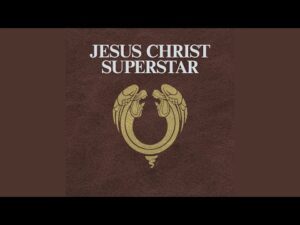 Then one day the station started blasting announcements of a new rock phenomenon coming out, and by gosh, they were going to play the whole damn thing on the talk show for us—all four sides of the double vinyl album—then have us call in telling them what we thought of it. This was going to be an EVENT!
Then one day the station started blasting announcements of a new rock phenomenon coming out, and by gosh, they were going to play the whole damn thing on the talk show for us—all four sides of the double vinyl album—then have us call in telling them what we thought of it. This was going to be an EVENT!
When that night came and the “ba ba ba-da-da-da’s” faded away, I was there in bed ready to find out what all the fuss was about. After an appropriate amount of fanfare introducing it to us, the grumbling base line and ominous twangy guitar opening notes of the overture rang out. Samplings of the songs to come comprised the overture, culminating in the fanfare portion of the title song.
This was followed by the first song, sung by the point-of-view character for the whole musical, none other than Judas Iscariot himself, who was disturbed by how out of control Jesus’ movement was getting.
I had a hard time following what was going on in the story for the entire first record. But when the second one started playing, I got my bearings as the Twelve Apostles started singing at the Last Supper. I really zeroed in on the story when Pontius Pilate came on the scene, and carefully followed the story from that point on.
When the music ended, the calls started coming in. The reactions were all over the place. Amazingly a lot of young rocking teenagers complained, “Where’s the resurrection?” That was in the days when 30 was the cut-off age where you stopped being cool. “Don’t trust anyone over thirty,” the saying went. After a lot of those hip youngsters called in complaining about the musical, one woman called in and said, “Well, I’m over thirty, and I loved it!”
My reaction? I was intrigued and I wanted to hear it again. Margaret was my best female friend in high school. She let me borrow her copy so I could listen again. My mom found out I had it and wanted to listen to it with me—probably because she thought it would be evil and blasphemous and Satanic and she wanted to protect me from it if necessary.
 We sat on the side of my bed with my little turntable record player on the floor in front of us and proceeded to listen to the whole damn thing, quietly following along with the words in the booklet that came with the album. Silently listening to the whole damn thing without speaking word one. When it ended, silence pervaded the room, until my mother spoke. Her words were totally unexpected:
We sat on the side of my bed with my little turntable record player on the floor in front of us and proceeded to listen to the whole damn thing, quietly following along with the words in the booklet that came with the album. Silently listening to the whole damn thing without speaking word one. When it ended, silence pervaded the room, until my mother spoke. Her words were totally unexpected:
“Well, that wasn’t as bad as I thought it would be.”
It didn’t take long for me to come to a decision, possibly the boldest, most outrageous decision of my life, at least for a boy who was a junior in high school.
I was going to compose my own rock opera.
Mind you, I had no formal training in music, other than the most basic training one gets in elementary school, you know, like, “This is a quarter note. This is a whole rest. This line on the staff is G.” And in junior high when I was in the choir for three years.
Our choir director was Louis Hauser—”Lou-EE,” not”Lou-IS.” He was one of those teachers whom the students adored, who would hang out in his office with him just for the fun of it. Somehow—I really don’t remember how—my best male friend, Tom Jones, and I became cozy enough with Louis that we were welcome to visit him at his home. It was there where another significant milestone occurred in my musical life.
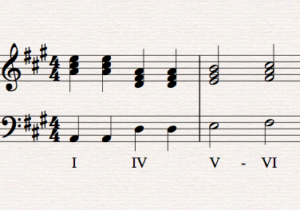 I’d started dabbling in writing songs. I tried writing a hymn once, including four part harmonizing like in the hymn book at church. I showed it to Louis. He sat down at his piano, played about two bars of it, and said to me, “Do you know what a chord is?”
I’d started dabbling in writing songs. I tried writing a hymn once, including four part harmonizing like in the hymn book at church. I showed it to Louis. He sat down at his piano, played about two bars of it, and said to me, “Do you know what a chord is?”
He then proceeded to open up the world of music to me on the spot with a lesson on chords. Nothing’s stopped me ever since. I fleshed out my musical knowledge by teaching myself from there, thanks to the graciousness of Louis Hauser. But I never rose above the level of amateur level.
Armed with all this knowledge, I commenced writing a rock opera. I bought a booklet of sheet music for Jesus Christ Superstar and studied it to shreds, the kind with two stanzas of piano accompaniment, lyrics inserted between them, and guitar chords above. I bought me a cheap guitar and taught myself to strum those magical chords Louis taught me about. I learned how to recognize the notes on the piano. I taught myself how to bang out my own songs on either guitar or piano, but never learned how to play anything I didn’t write beyond “Chopsticks.”
Armed with all that, I began to composing an opera.
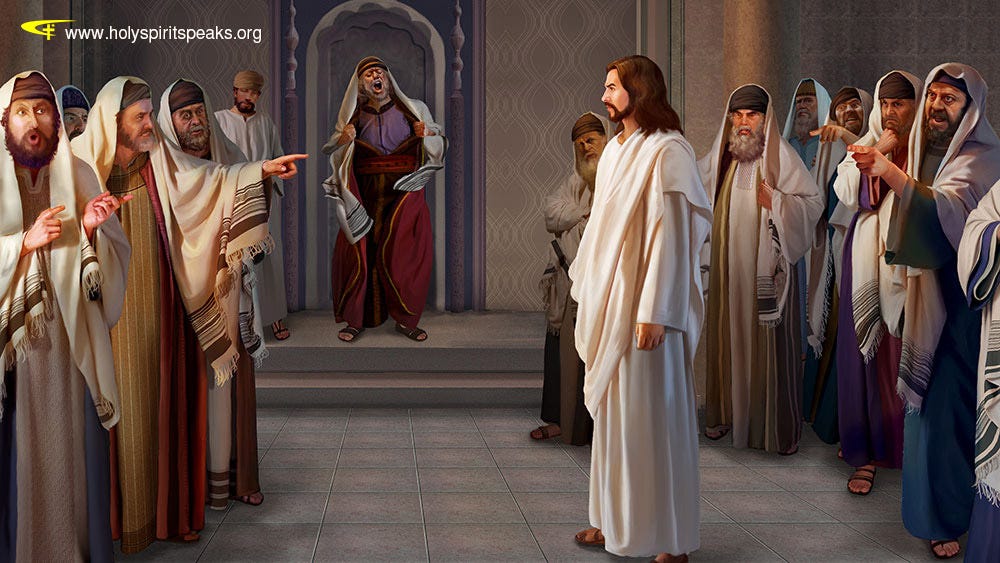
But first I had to answer one big question. What story was I going to tell? Webber and Rice already beat me to the most important story in my life, the story of Jesus. Okay, then what’s the second most important story in my life as a young Mormon?
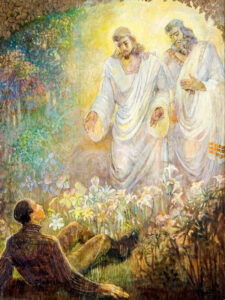
The story of founding Mormon prophet Joseph Smith!
That’s when General Prophet Joseph Smith was born, the rock opera I decided to write. “General” because he was lieutenant general of the Mormon Legion militia in Nauvoo, Illinois, the city he founded for his followers to live in. “Prophet” because he claimed to be called of God as a prophet who would restore true Christianity to the Earth.
I developed the habit of affectionately calling my opera GPJS, like a certain popular operatic musical of today is affectionately called Les Mis.
The first scene tells the story of how a very young Joseph was fired up by various revival meetings to seek out authentic Christianity. Mormons call this event “The First Vision.” The very first song I wrote was “Have You Heard the News?”
Over several years I labored over the musical off and on. My adolescent ambition at the time rose no higher than to complete it and see if I could get the local Mormon congregations to perform a stage production of it. Then I would be fulfilled.
Well, that never happened.
I graduated from high school and headed off to Brigham Young University. I continued to work on it, occasionally performing some of it for my fellow students banging on the piano or strumming the guitar. At BYU I attempted to study Psychologist, then attempted to master Computer Science, then succeeded in getting married and having a kid—none of which stuck.
Somewhere in there I completed General Prophet Joseph Smith. Five years in the making. It seemed almost surreal to have it be finished after all that time.
One of the last songs I wrote was a ballad.
That’s when I put my opera on the shelf and let it collect a pile of dust. I attempted marriage a second time, and that effort lasted 20 years rather than the original year-and-change with the first one. I attempted to have kids and succeeded three times.
And life went on as if GPJS never existed.